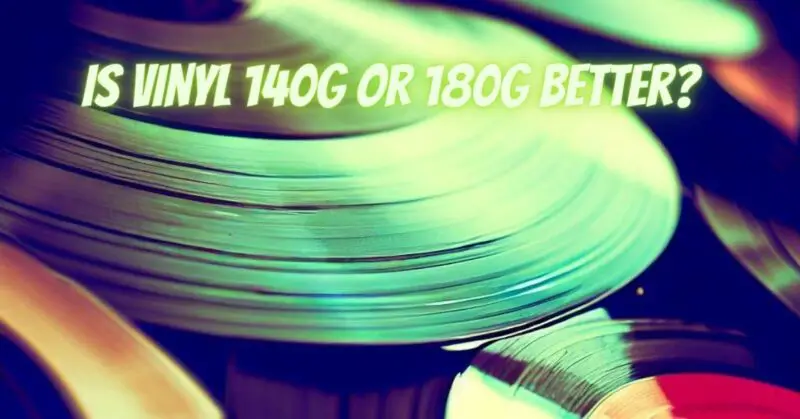In the vibrant world of vinyl records, the weight of the vinyl itself has become a topic of interest and debate among audiophiles and collectors. The choice between 140g and 180g vinyl records has ignited discussions about sound quality, durability, and the overall vinyl experience. This article delves into the distinctions between 140g and 180g vinyl records, exploring the factors that influence their appeal and helping you make an informed decision based on your preferences.
Understanding Vinyl Weight: The weight of a vinyl record refers to the thickness and density of the vinyl used in its pressing. This weight, measured in grams, can influence how the record interacts with the turntable’s stylus and affect sound reproduction.
Sound Quality Considerations:
- 140g Vinyl Records: While 140g records are lighter than their 180g counterparts, they can still provide satisfactory sound quality when properly mastered and pressed. Many modern albums are available in this weight.
- 180g Vinyl Records: Heavier vinyl records, such as those weighing 180g, are often associated with enhanced sound quality. The added thickness can contribute to reduced vibrations and improved stability during playback, potentially resulting in improved clarity and fidelity.
Durability and Warping:
- 140g Vinyl Records: Records pressed on 140g vinyl are generally durable and suitable for regular playback. They are less likely to warp under proper storage conditions.
- 180g Vinyl Records: Due to their greater thickness, 180g records are often considered less prone to warping. They provide a flatter playing surface that minimizes the risk of tracking issues and uneven sound reproduction.
Collector Appeal and Perception:
- 140g Vinyl Records: Many contemporary releases, including reissues, are available in 140g weight. They cater to collectors seeking accessibility, affordability, and a satisfactory listening experience.
- 180g Vinyl Records: Records pressed on 180g vinyl carry a perceived sense of quality and collector appeal. They often appeal to audiophiles who prioritize sound quality and the tactile experience of handling a heavier record.
Quality of Mastering and Pressing: Both 140g and 180g records can offer exceptional sound quality when carefully mastered and properly pressed. The quality of the vinyl compound, the mastering process, and pressing techniques play a crucial role in the final sound.
Personal Preference: The choice between 140g and 180g vinyl records ultimately comes down to personal preference. If you prioritize sound quality and are willing to invest in a potentially richer audio experience, 180g records might be preferable. If accessibility, affordability, and a satisfactory listening experience are your priorities, 140g records are a valid choice.
The question of whether 140g or 180g vinyl is better is subjective and depends on your preferences as a listener and collector. Both weights have their merits, and each can contribute to the timeless charm and magic of vinyl playback. Whether you’re discovering new artists or revisiting classic albums, the joy of vinyl lies in the authentic sound and tangible connection to music that only vinyl records can provide.


